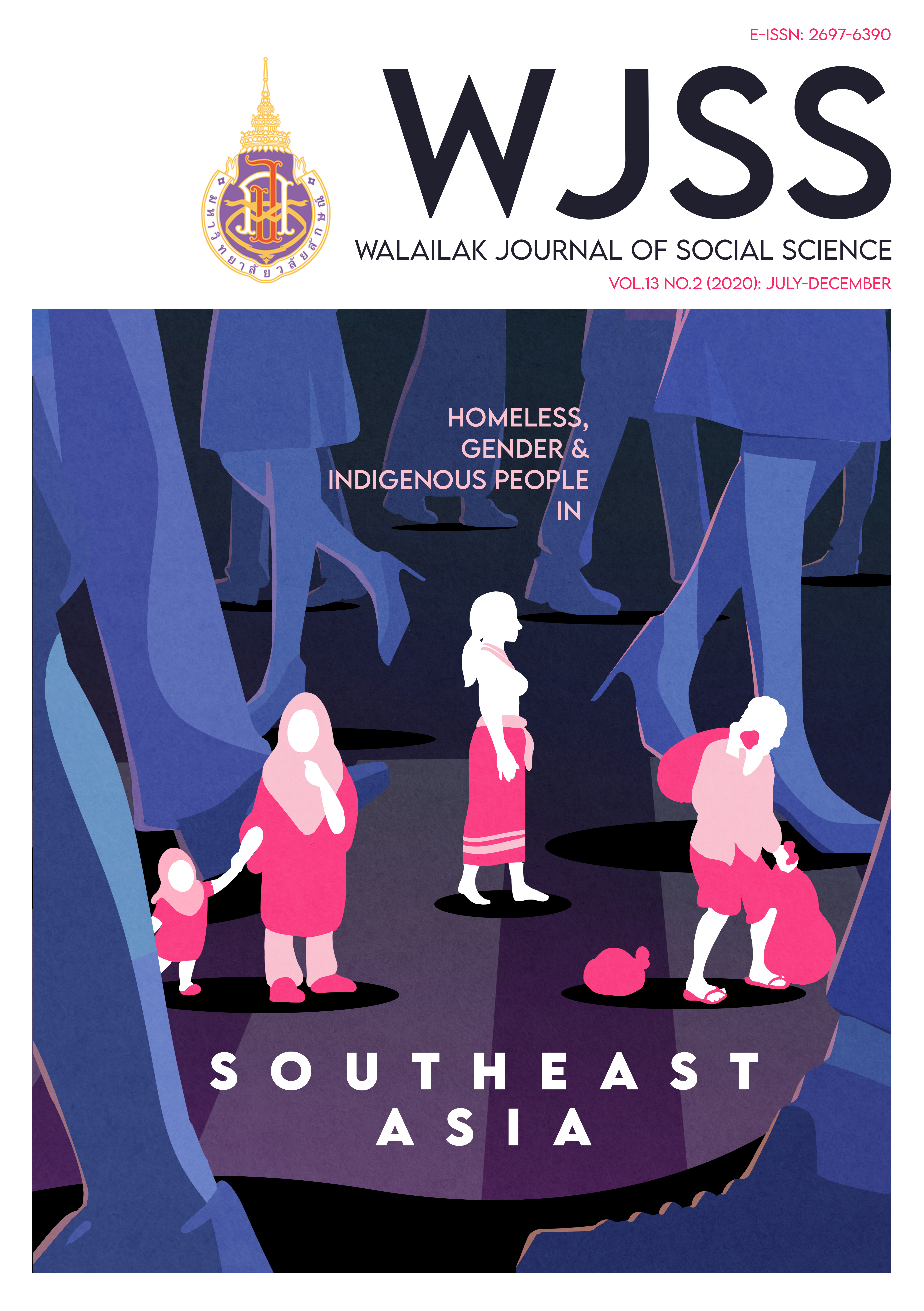Life and Worldviews of Garbage Collectors in Ubon Ratchathani Province
Main Article Content
Abstract
This article presents the experiences and the worldviews of 11 garbage collectors in Mueang and Varin Chamrap districts of Ubon Ratchathani Province area. Key informants were chosen by snowball and accidental sampling. With qualitative research approach, in-depth interview and non-participation observation are employed. Two garbage store owners were interviewed as additional key informants. The results of the study showed diverse lifestyles and various work experiences among collectors of garbage for sale. A synthesis has placed the findings in two groups: a garbage collector who crawls garbage for sale only and a garbage collector who both crawls garbage for sale and purchases garbage. Several reasons for becoming a garbage collector include unemployment, retirement, health problems, migration, and lucrative hobby. Each individual had a career change and experienced different changes in life, which resulted in their choice to be a full-time garbage collector or just an additional occupation. The informants have reflected different worldviews about being garbage collector, yet positive. Their points of view include (1) garbage collectors are diligent people, (2) garbage collectors value the profession as a decent career to earn a living for family, and (3) garbage collector is probably a choice for aged people to contribute to society and environment.
Article Details
Copyright: CC BY-NC-ND 4.0
References
Boonjuea, B. (2001).Scavengers: urban poor in recycling and reusing systems. M.A. Thesis (Development Sociology), Khonkaen University. [In Thai]
Butpluang, P. (2006). Garbage gatherers in Municipal of Chiang Rai. M.A. Thesis (Social science for development), Chiang Rai Rajabhat University. [In Thai]
Khambunreang, J. (2019). Garbage collector: a local recycler occupation. Retrieved from https://www.chiangmainews.co.th/page/archives/ 1051139. [In Thai]
Koanantakool, P. (2001). Marginal life: identity and meaning. Bangkok: Princess Maha Chakri Sirindhorn Anthropology Centre. [In Thai]
Kongsetthakul, N. (2006). Alternative: the constitution of the garbage collector as the otherness. Ph.D. Dissertation (Development Education), Srinakharinwirot University. [In Thai]
Saisema, W. (2017). Changing of identity from scavengers to zaleng’s group case of On Nut 14 Rai community, Khet Prawet, Bangkok Metropolitan Administration. M.A. Thesis (Rural Studies and Development), Thammasat University. [In Thai]
Sangmanee, C. (2001). ‘Lueb people': a group of waste collectors at waste disposal plant, Nakhon Si Thammarat Province. Saikaew Journal, Nakhon Si Thammarat Rajabhat Institute, 4(1), pp. 23-39. [In Thai]
Sepa, J. (2012). Life security and life security expectation for garbage collectors elder: a case study of Nong Khaam Garbage Landfill. M.S.W. Thesis (Social Welfare Administration and Policy), Thammasat University. [In Thai]
Somboonboorana, S. (1993). Life of marginal urban community: a case of garbage picker in suburban area. M.A. Thesis (Sociology), Thammasat University. [In Thai]
Somboonboorana, S. (2001). Garbage keep life, life keeps garbage: experiences of urban garbage pickers and Zaleng garbage buyers. in Marginal Life: Identity and Meaning. (pp.184-218). Bangkok: Princess Maha Chakri Sirindhorn Anthropology Centre. [In Thai]
Somboonsut, J. (2004). Elderly women, poverty, marginal: elderly female beggar's street lives. M.A. Thesis (Women's Studies), Thammasat University. [In Thai]
Wun’gaeo, S. (2003). Marginalization. Bangkok: National Research Council of Thailand Office. [In Thai]
Wun’gaeo, S. (2007). Marginal people: from concept to real word. Bangkok: CU Press. [In Thai]


